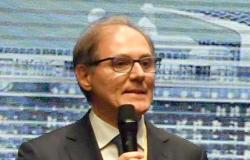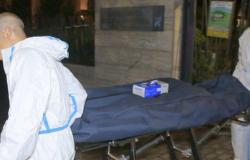Another recognition of the quality of the research conducted by the University in defense of bees, fundamental insects for the planetary ecosystem. Ilaria Colzi, researcher in Plant Physiology at the Department of Biology, has won funding from the National Geographic Society to study whether microplastic pollution in soils can jeopardize the beneficial interaction between plants and pollinating insects.
BeeSafe (“Bee-ing polluted: studying the microplastic effects on plant-pollinator interactions”), a two-year project of which Colzi is coordinator, starts from the hypothesis that microplastics in the soil can influence some phenotypic and chemical characteristics of the flowers involved in the pollinator attraction – colours, smells, nectar quality – thus interfering with the preferences and behavior of insects in search of food. To date, no investigation of this type has ever been carried out, therefore the research activity will make an interesting and innovative contribution. All the data acquired for anthropized urban sites will be compared with the most natural and undisturbed areas, allowing us to obtain a general picture of the actual diffusion of these pollutants and the risk for pollinators.
“Considering the multitude of stress factors caused by anthropogenic activity that put bee and bumblebee populations at risk around the world, it has become urgent to understand if, and in what way, microplastics can represent a further danger for these important organisms – explains Colzi –. Communication between plants and pollinators is mutually beneficial: pollinators improve the reproductive success of plants through pollen export and collection; in turn, the nectar and pollen serve as nourishment for pollinators.”
“Flowering plants – he adds – have therefore developed various characteristics to attract or influence the success of pollinators, including flower coloration, scents and nectar characteristics. Adaptation of floral traits is essential for the attraction of pollinators and any interference with this adaptation can have large impacts on the pollination process and, consequently, on plant biodiversity, ecosystem health and even agricultural production.”
The research is characterized by a strong multidisciplinary aspect, involving, in addition to all the collaborators of the Plant Physiology Laboratory, three other “project members” in order to cover all the necessary skills: David Baracchi, professor of the Department of Biology and expert of the study cognitive abilities and the neurobiology of pollinators; Cosimo Taiti, technologist at the Department of Agricultural, Food, Environmental and Forestry Sciences and Technologies and expert in the characterization of volatile substances emitted by plants; Massimo Nepi, professor of the Life Sciences Department of the University of Siena, expert in the study of nectar and plant-pollinator interactions.
“Through experiments in controlled laboratory conditions – specifies Colzi – we will grow plants on soil artificially contaminated with microplastics and observe the effects on physiology, on various floral characteristics and finally on the behavior of bees and bumblebees through preference and memory tests in the specialized laboratory by David Baracchi. The research activities also include an important field monitoring campaign to document the current spread of microplastics in plants and pollinating insects in various environments in central Italy, which will range from anthropized and polluted areas to more preserved and protected natural ones”.
“The activities have already begun – he concludes – and as a National Geographic Explorer with my research group I will move aboard a sailing boat for a cruise among the most pristine islands of the Tuscan Archipelago, hunting for microplastics in nectar , pollen and pollinating insects”.





